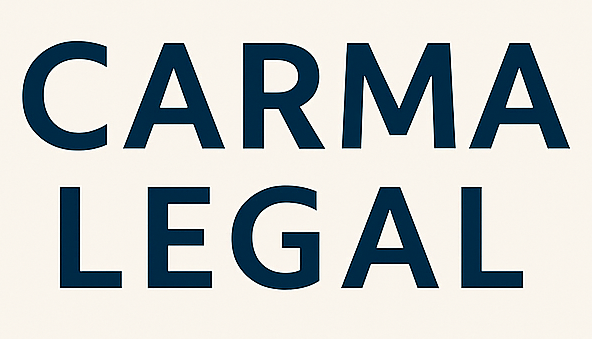If you or a loved one has suffered a serious blow to the head, you need a head injury lawyer to protect your rights and secure the compensation necessary for long-term care. Traumatic brain injuries and other catastrophic head traumas can lead to life-altering consequences—ranging from cognitive impairment and physical disability to emotional and financial hardship. Handling these cases involves complex medical evidence, strict filing deadlines, and negotiation with powerful insurance companies. By working with an experienced advocate, you gain the support necessary for lasting recovery, ensuring that your unique challenges are understood and addressed every step of the way.
Recognize head injury impact
Head injuries vary in severity and effect, but they all carry the potential for significant, long-term harm. Understanding what you’re facing is the first step toward building a strong case.
Types of head injuries
- Concussion – A mild form of traumatic brain injury (TBI) caused by a sudden jolt or blow to the head
- Closed head injury – Damage where the skull remains intact but brain tissue is bruised or torn
- Penetrating head injury – Occurs when an object breaches the skull and injures brain tissue
- Diffuse axonal injury – Widespread damage to nerve fibers due to severe acceleration-deceleration forces
Approximately 2.5 million people suffer from traumatic brain injuries each year in the United States [1]. Even concussions, considered “mild” TBIs, can have lasting effects if left untreated.
Short-term and long-term effects
Short-term symptoms may include headaches, dizziness, nausea, confusion, or loss of consciousness. Over time, you might experience:
- Memory loss and cognitive deficits
- Mood swings, depression, anxiety
- Sleep disturbances and fatigue
- Sensory impairments such as blurred vision or tinnitus
Left unaddressed, these issues can worsen, affecting your ability to work, care for your family, and enjoy daily activities.
Navigate legal complexities
Proving a head injury claim requires careful analysis of facts, evidence, and applicable laws. Without skilled guidance, you risk missing critical opportunities for recovery.
Establishing liability
You must show that another party’s negligence or wrongful act caused your injury. Common scenarios include:
- Motor vehicle collisions
- Workplace accidents
- Defective products or equipment
- Premises liability, such as slip and fall hazards
Proving causation
Linking the incident directly to your head injury involves:
- Medical records and expert opinions
- Diagnostic tests, such as CT scans or MRIs
- Documentation of symptom onset and progression
An attorney familiar with head trauma can coordinate with neurologists and rehabilitation specialists to compile compelling evidence.
Understanding relevant laws
Each state sets a statute of limitations for personal injury lawsuits. You also must navigate:
- Federal regulations, if your injury occurred on federal property
- Special rules for medical malpractice or defective products
- Requirements for pre-suit notices in certain jurisdictions
Failing to adhere to these rules can bar you from compensation entirely.
Evaluate compensation options
A comprehensive assessment of your damages helps determine the full value of your claim. Compensation generally falls into three categories:
| Damage type | Examples |
|---|---|
| Economic damages | Medical bills, rehabilitation costs, lost wages |
| Non-economic damages | Pain and suffering, emotional distress, loss of enjoyment |
| Punitive damages | Designed to punish gross negligence or intentional harm |
Economic damages
You’re entitled to recover:
- Past, present, and future medical expenses
- Costs for home modifications, assistive devices, and ongoing therapy
- Lost income and diminished earning capacity
Non-economic damages
These intangible losses recognize:
- Chronic pain, headaches, and cognitive challenges
- Anxiety, depression, and PTSD symptoms
- Reduced quality of life and enjoyment
Punitive damages
In rare cases involving extreme negligence or willful misconduct, courts may award punitive damages to deter similar conduct.
Leverage experienced attorneys
An attorney with a proven track record in head trauma claims brings resources and expertise that you cannot match alone.
Expertise in catastrophic cases
Look for counsel who specializes in serious injuries, such as a traumatic brain injury attorney or a personal injury lawyer catastrophic injury. These advocates understand the medical complexities and legal strategies crucial for maximum recovery.
Access to expert testimony
Your lawyer should coordinate with:
- Neurologists and neuropsychologists
- Rehabilitation specialists and vocational experts
- Life-care planners to forecast long-term needs
Expert reports lend weight to your claim and clarify the full scope of your losses.
Skilled negotiation tactics
Insurance adjusters often undervalue head injury claims. A seasoned attorney handles:
- Demand preparation with detailed documentation
- Settlement negotiations tailored to your unique situation
- Litigation, if necessary, to protect your rights in court
Choose the right lawyer
Selecting the best advocate for your case sets the foundation for success.
Key qualifications
When evaluating potential counsel, consider:
- Years of experience in head injury and catastrophic cases
- Record of substantial verdicts and settlements
- Access to a multidisciplinary support team
Questions to ask
Before you sign an agreement, make sure to ask:
- How many head injury cases have you handled?
- Will you personally manage my file or delegate to juniors?
- How do you communicate updates and decisions?
- What is your fee structure, and are there any hidden costs?
Gather essential documents
Early preparation streamlines case development and strengthens your position.
Medical and treatment records
- Hospital admission notes, imaging scans, surgical reports
- Rehabilitation and physical therapy records
- Prescription history and specialist consultations
Financial and employment records
- Pay stubs, tax returns, and employment contracts
- Documentation of lost wages or reduced earning capacity
- Receipts for out-of-pocket expenses
Witness accounts and expert reports
- Statements from bystanders or coworkers
- Accident scene photographs or surveillance footage
- Opinions from medical and life-care planning experts
Meet filing deadlines
Missing critical deadlines can forfeit your right to compensation.
Statutes of limitations
State laws typically allow two to three years for injury claims, but this varies by jurisdiction. For example, Texas generally requires filing within two years of the injury date, with exceptions for minors or delayed diagnoses [2].
Exceptions and tolling
Courts may extend deadlines when:
- You’re a minor at the time of injury
- The harm was not discoverable until later
- Claims involve governmental entities requiring pre-suit notices
Your attorney ensures that all statutes and special requirements are met.
Act before deadlines
Time is of the essence when pursuing a head injury claim. Early action allows your lawyer to:
- Secure and preserve evidence
- Interview witnesses while memories are fresh
- Prevent loss or destruction of crucial documentation
By contacting a qualified tbi lawyer or a trauma injury lawyer promptly, you protect your ability to obtain the resources you need for recovery and justice.
If you’re facing the aftermath of a severe head injury, don’t navigate these challenges alone. Reach out to a specialized advocate today to discuss your case, understand your rights, and take the first step toward securing the support and compensation you deserve.








